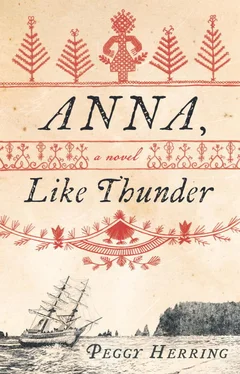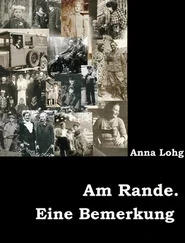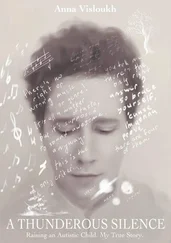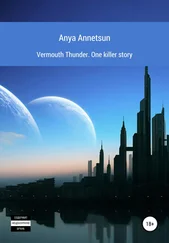She’s so preoccupied with him, and he with her. I have no time to think about that. Putting aside their feelings, the possibilities and impossibilities, I see they’ve presented me with a chance. I take two steps back. Three more. They’re not coming. They’re not calling. No one is. I edge farther away until all the berry bushes are behind me. I pause at the lip of a slight depression, set down my basket, and slip over the edge.
I’m going to find my husband.
I try to keep my step light as I run through this vale. I climb the other side of the depression and head straight. I aim to find a path. And if I’m lucky, it’ll be a path that leads to the sea. From there, I need only turn right to go north.
I can’t think beyond that.
I stumble upon an old, rutted trail. Judging by the overgrown branches, it’s rarely used. I hope I’m not misreading the thick brush. If the trail’s been abandoned for long, it may lead nowhere, and I may get lost. Ahead, the thick undergrowth ripples in a slight breeze. I choose to take my chances with the trail.
The minutes slip away. Have they noticed I’m missing? Are the watchmen looking for me? Has anybody run back to the village to alert the others? I force myself to go faster. I must get as far away as I can before they notice.
Finally, my overgrown path meets another. This new path is wide and clear. I run. I step on a branch and it cracks. The sound echoes off the trees. I stop—but there’s nothing more.
Off to the side, the forest thins a little. I see sunlight. I head toward it.
I find a clearing, scented with an indescribable perfume, blanketed with wildflowers. There are the purple ones whose roots we eat. There are the tiny pale clusters of blossoms at the top of fragile stems, looking like candlesticks. There are the starry white ones with butter and sunshine in their centres. They lead my eye around as I find shapes and see the constellations they form.
But I’ve no time. I plunge back into the forest.
Using the light and shadows to guide me, I try to head in the same direction. At times, I’m blocked by the land or a fallen tree or one of countless streams. The little creeks are as tangled up as yarn, and I wish I could give one end a good, strong tug and turn them into a single long, powerful river. The kind of river that leads to the ocean.
As dusk approaches, I hear running water. I head toward it and find a fast-flowing creek. The water is glossy where it curls around the logs and rocks. It flows to my right. This is it—my path to the coast.
A shadow falls across the little stream.
One of the guards? A bear? My mother’s leshii?
No.
Koliuzhi Klara on the opposite bank. Alone.
It’s over. I’m going back. “Please,” I say. “I just want to be with my husband.”
She smiles. Her eyes glitter. “Wacush,” she says. She raises her head and swivels away. She merges into the shadows of the forest.
In a moment, I don’t hear her at all.
I shelter under a low overhang at the foot of a cliff. I pull my knees up to my chin and wait for sleep to come. Mosquitoes pester me and some bite before I’m able to swat them away. I try not to think too much about what I’m doing. What matters is that I’ll soon be back with Nikolai Isaakovich.
The night air sags with moisture, but the ledge above prevents it from settling on me. In a few hours, before the sun rises and erases the stars, I’ll leave. Polaris will point me in the right direction. When she fades away, I’ll find a stream, and eventually, following Polaris by night and water by day, I will reach the ocean. From there, I’ll go north until I find him.
Is my child cold? I hum one of my mother’s lullabies, one about a crying duck, careful to keep my voice low in case the Quileutes are looking for me. I don’t know why Koliuzhi Klara let me go—whether it was pity or kindness or whether her own new feelings guided her decision—but I will remain indebted to her for all my life. I drift in and out of sleep, and then, when I think enough hours have passed, but the sky is still dark, I go back to the creek where I might get a better look at the sky.
The trickling water seems louder in the dark. I take a drink, then look up. Mercifully there are no clouds.
In a break in the treetops, through a hole that’s as round as the opening of a telescope, I spot Polaris. I stretch out my arm and I measure fist by fist as my father showed me, arriving at a number somewhere between forty-five and fifty. That’s my latitude. Then I line up Alpha Cassiopeia—the brightest star in the Queen of Ethiopia—with two branches sticking out high overhead, and I wait. When the star sinks out of alignment, I know I’m facing west.
It’s difficult enough to walk in the dark, and even harder to walk along the riverbank. Shrubs with sharp branches compete with grasses and reeds for water and light. This is why so few koliuzhi trails follow the waterways. I walk a few sazhens into the trees where there’s less undergrowth. I can’t see the water any longer, but its sound is not far. It’s a friend who’s agreed to accompany me on my voyage. There’s no path, but there’s more space. Eventually, I’ll find a trail.
Are the Quileutes looking for me? I wonder what Koliuzhi Klara told them. That she couldn’t find me? Would she be audacious enough to tell them that she saw me running away—in a southerly direction? If she gets caught in a lie, they’ll punish her. Should I go back to prevent that? What if she told them that I’d gone back to my people on a ship? Or that she’d seen a wolf or a bear dragging my corpse away to its den? My sudden return could make things worse for her.
I must get much farther away, for her sake, too.
When the sun starts to rise, I’m hungry. I snap off spruce buds as I go and eat them. I stop to pick some tiny scarlet berries that I recognize. They grow in a spray and pop like fish roe when I bite them. Only half are ripe, and I don’t have time to pick very many anyway. I must carry on. I scratch gum off a tree and chew as I walk, remembering the day I did the same thing with Inessa and the other girl.
When the brig ran aground, and we first stepped into the forest, I had no notion there was anything here to eat. It was empty wilderness—nothing more. But the koliuzhi live in a kind of Eden with an abundance of berries, roots, mushrooms, and shoots. It has ponds and rivers stocked with fish, and an ocean full of seals, whales, halibut, clams, mussels—and more. Thanks to the koliuzhi—and the night sky, and the good sense my father nurtured in me—I know I can survive until I find my husband.
When the mud is deep, and when I have to walk a long way to circumvent a heap of fallen trees, and when I come up against a stream too wide and deep to cross, I wonder if I’ve made a mistake. Sometimes, I think I should turn back. Then the landscape changes, and my path grows easier, and every time, I decide I must not give up.
Late this afternoon, a gorge that’s gradually grown deeper forces me farther into the forest, distant from any stream. I miss the company of the flowing water, but I must go where the land permits. When the light starts to fade, and I know evening is not far, I look up. The clouds are moving in.
By the time night falls, there’s no sense continuing. There’s no stream to follow. I can’t see the stars. I might be walking back to the Quileutes.
I pray it doesn’t rain.
I look for shelter. The land is flat, and there’s no overhang that I can hide under until the sky clears. I remember the boy in the game of Cache-Cache—the one who hid beneath a fallen log—and I try to locate a log of my own, one that’s big enough and dry underneath. When I see one that’s suitable, I crawl under and prepare for another night in the forest.
Читать дальше













